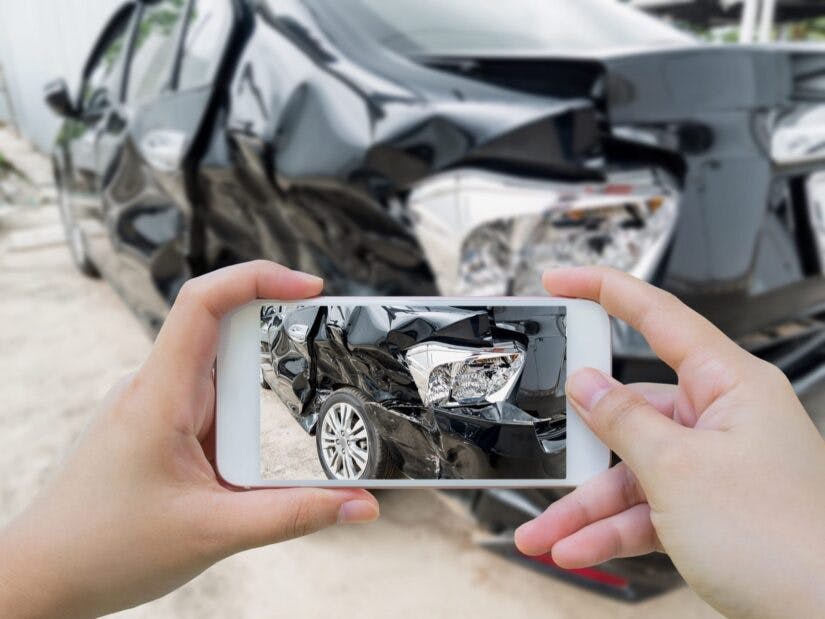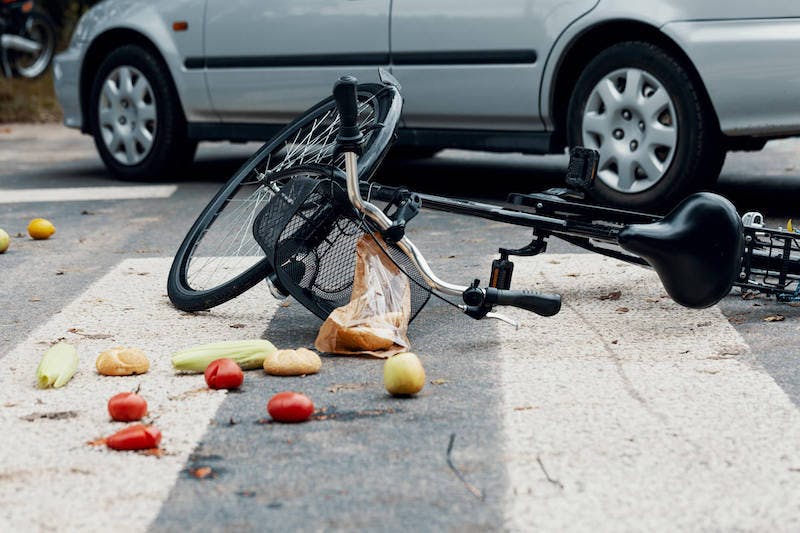
You may have heard of punitive damages and wondered what they are, under what conditions they must be paid, or what the difference is between them and compensatory damages.
These are all well-founded questions you must know the answer to, especially if you are considering filing a lawsuit. Below you will find the answers to the above questions and beyond.
Punitive Damages
Punitive damage, also known as exemplary damage, is when in addition to compensatory damages, a defendant who is found guilty of a crime, violation, outrageous conduct, or extreme negligence is required to pay additional damages. This type of damage is paid when compensatory damages, or funds paid to the aggrieved person(s), are insufficient.
Punitive damages go beyond reimbursing the wronged party. They are explicitly intended to penalize the negligent party whose actions are deemed to be willfully or extremely dangerous. They are also known as ‘exemplary damages’ because they are intended to serve as a warning to prevent recurrence of the same or similar actions.
What Are Some Examples of Punitive Damages?
Punitive damages are not paid as frequently in civil lawsuits or commercial law as compensatory damages. This is because certain criteria must be met for a punitive damage claim to be awarded. However, with consistent evidence and a quality personal injury lawyer, a victim can win such a case. To better understand the mechanics behind the concept of punitive damages, here are two of the most notorious examples where punitive damages were successfully applied:
MGA V. Mattel
This case left a mark on the toy-making industry. MGA V. Mattel involved two companies responsible for manufacturing Barbie Dolls and Bratz Dolls, respectively. These businesses engaged in a civil conflict lasting for years and involving thousands of court documents a few years ago.
The question at hand was if Mattel had violated intellectual property rules and improperly used trade secrets with reference to the Barbie brand, harming the Bratz brand in the process. In this unusual decision, the court awarded MGA 85 million in punitive damages alone, concluding Mattel had acted exceptionally cunningly.
Liebeck V. McDonald’s
Punitive damages are well-known in modern law, thanks to the well-known case of Liebeck v. McDonald’s. Stella Liebeck required skin grafting, an eight-day hospital stay, and additional treatment lasting more than two years when she unintentionally spilled hot McDonald’s coffee on her lap.
Even though Liebeck only received $640,000 in the end, the first punitive penalties granted were much higher. McDonald’s received $2.7 million in punitive damages as payback.
What Is the Difference Between Punitive and Compensatory Damages?
Before explaining how the two terms differ from one another, we need to understand the meaning of compensatory damages. Plaintiffs may seek compensatory damages to account for genuine losses they have suffered. This kind of compensation can be used to cover future medical costs, treatment costs, and other costs related to treating a victim of someone else’s carelessness. These are commonly known as actual damages.

Depending on the nature of the damage, compensatory damages fall into two more specific categories:
- Special Damages – These are easier to calculate because they are based on actual costs the victim has experienced as a result of an incident-related injury, and because these losses are easily established and supported by tangible evidence. In addition to medical costs, victims may be compensated for lost wages, property damage, or out-of-pocket court and litigation costs relating to negligence.
- General Damages – Because general damages are subjective, they are more difficult to calculate. The short-term losses in a personal injury case may be obvious, but the long-term repercussions are frequently invisible. Also, there may be no physical evidence. In addition to any long-term medical care and therapies for injuries that take time to manifest, there is emotional distress, pain and suffering, PTSD, disfigurement, and many others. Even a defamatory injury can be judged to be eligible for general damages.
The primary distinction between these two categories of damages is they are intended for different civil claimants. In order to compensate the plaintiff and cover the costs of an accident or injury, compensatory damages are granted. Punitive damages are given to the defendant as a penalty. Punitive damages may be granted in any kind of personal injury claim, but are most frequently granted in situations when the defendant was egregiously negligent, such as drunk driving or malpractice in the medical field.
In What Situations Are Punitive Damages Awarded?
Various cases award punitive damages if it can be proven the defendant has engaged in misconduct resulting in actual damages. Cases such as a successful business intentionally concealing adverse effects of a drug produced by them, or a doctor performing the incorrect surgery on a patient resulting in trauma, are examples of cases where punitive damages are in order.
Other cases justifying the payment of punitive damages include:
- Assault
- Sexual assault
- Car and Truck accidents
- Medical malpractice
- Drunk driving
- Driving under the influence
- Sexual acts with a minor
- Kidnapping
- Criminal assault
What Is the Purpose of Punitive Damages?
Punitive damages are always given together with other damages. This increases the amount the plaintiff must receive from the defendant in a personal injury claim. Therefore, they are a method of further punishing the defendant in cases when their behavior is outrageous, according to the criminal justice system.
The reason for applying punitive damages is to deter perpetrators from committing the same acts in the future. It is also intended to set a precedent for other people, so they will not be tempted to engage in the same misconduct.

What Does Georgia Recognize as Punitive Damages?
According to Georgia law, a judge may grant punitive damages with the express intent of holding a defendant accountable for the negligence causing the plaintiff harm. It may be challenging for regular individuals to understand and apply concepts like “egregious” to their own situations. Therefore, if you want to pursue punitive damages, contacting a personal injury lawyer in your region is always the best move!
An experienced attorney can assess the forms of compensation you could qualify for based on state legislation and professional expertise. In addition to giving you advice and acting as your advocate throughout the court procedure, they can assist you with filing a claim. Awarding punitive damages requires evidence, and only a lawyer can help you find, organize, and present it appropriately before the court.
Courts may apply punitive damages in the case of tort liability. They usually only do this when the plaintiff can provide evidence showing the defendant has intentionally committed a tort offense or had wrongful conduct.
This law is intended to provide compensation to the injured person, hold liable parties accountable, and simultaneously discourage the perpetuation of such acts. It is, however, important to understand the limits of tort law are established by statutory and common law. You can contact a lawyer that offers free case consultations to learn more about tort law.
What Factors Determine Punitive Damages?
Before a court can award punitive damages, it must consider certain factors that affect the total amount the guilty party must pay. Among the factors determining the amount of punitive damages are the following:
- Malicious acts – if it is proven the defendant’s act was done intentionally, they are liable to pay punitive damages.
- Negligent behavior – if the defendant acted negligently, then punitive damages are awarded by the civil court. The amount will be higher if it is found the defendant has had similar wrongful behavior in the past.
- The existence of precedents – the actual punitive damages awarded are also influenced by similar cases and the amounts of compensatory and punitive damages imposed in those cases.
There are certain factors that determine the final amount in the criminal justice system, but each case is different and each time the defendant’s actions influence the punitive damages awarded.
What are the Punitive Damage Caps?
Punitive damages, in most cases, have been capped at $250,000 following the introduction of the tort reform in 2005. Still, the particulars of each individual case determine if the amount of punitive damages will be limited to this amount.
However, when calculating punitive damages, you must remember they normally do not exceed four times the amount of compensatory damages. For instance, a plaintiff will likely receive up to $400,000 in punitive damages if they are granted $100,000 in compensatory damages.
Source: Enjuris
How Can You File for a Punitive Damages Claim?
In personal injury lawsuits, punitive damages are claimed precisely the same way as other compensatory damages. The plaintiff must invoke them in their complaint against the defendant as they did for compensatory damage. The difference comes only when the jury has to decide on the case.
If there is also a punitive damages claim, the lawsuit is divided into two stages. In the first stage, the jury establishes how much to grant the plaintiff for their medical treatments, medical expenses and medical bills, lost income, and for the pain and suffering they endured. After an amount is set, the jury consults to decide whether or not to award punitive damages in light of the verdict.

If it is determined punitive damage awards are necessary to compensate plaintiffs, it proceeds to the second stage of the personal injury case. In this phase, the jury examines the defendant’s conduct and determines if they are guilty of committing similar wrongful behavior in the past. To reach a conclusion, the jury is presented with specific evidence of their conduct and shown what the defendant caused that justifies the need for punitive damages awards.
FAQ
Does Insurance Cover Punitive Damages?
State law and policy language both play a role in determining whether punitive damages are covered by insurance in personal injury cases. Different states have different regulations governing whether punitive damages are insurable. In Georgia, it is not admissible to claim punitive damages from the insurance provider.
Can You File a Punitive Damages Claim in Negligence Cases?
Depending on the severity of your injuries, you could be entitled to punitive damages if you sustained a personal injury as a result of someone else’s negligence. Punitive damages are awarded in cases of negligence, and only if negligence can be proven and if there are repercussions to the defendant’s actions.
Are Punitive Damages Taxable?
In general, punitive damages are subject to tax under “other income”. However, in a situation where the case is so serious the amount exceeds the cap, the plaintiff must pay the state 75% of the total amount, less a portion of attorneys’ fees and court costs.
Is There Another Term for Punitive Damages?
Punitive damages are also known as exemplary damages. The reason they are called so comes from their very name. This is because their purpose is to set an example of wrongdoing. By imposing punitive damages, it is hoped the rest of the population will be discouraged from doing the same actions for fear of being punished with such a large sum.
Can Punitive Damages Change the Value of a Case?
The possibility of claiming punitive damages certainly increases the value of the case. Most of the time, this also has the effect of increasing the amount awarded by the jury for the suffering and pain the plaintiff has gone through. The reasoning is simple: if the defendant’s conduct is egregious and exhibits intentional acts, then the court orders compensatory damages with greater leniency.


